When to Quit Your Job Immediately
WhatToGetMy Instructional Article
- Staying in a job where you are not getting the best out of, is not ideal, nor is it good for your health and wellbeing. Find out when to quit your job immediately in this helpful article. This article answers the questions of how to know if you should quit your job, and when to leave a job without notice and not be worried about any legal implications.
Monthly job hires and separations in the United States from September 2019 to September 2020 (in millions). Source: Statista
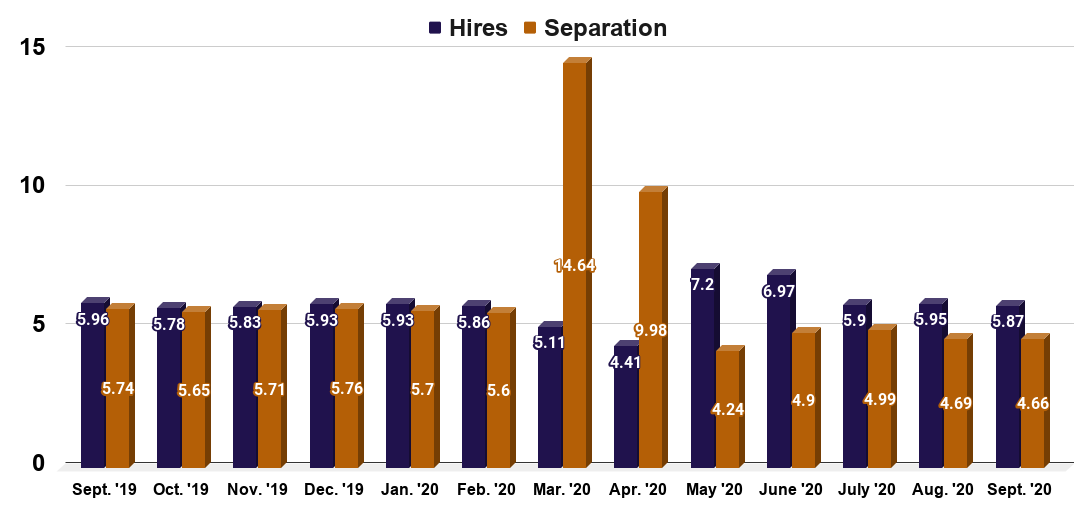
Monthly job openings rate in the United States from September 2019 to September 2020. Source: Statista
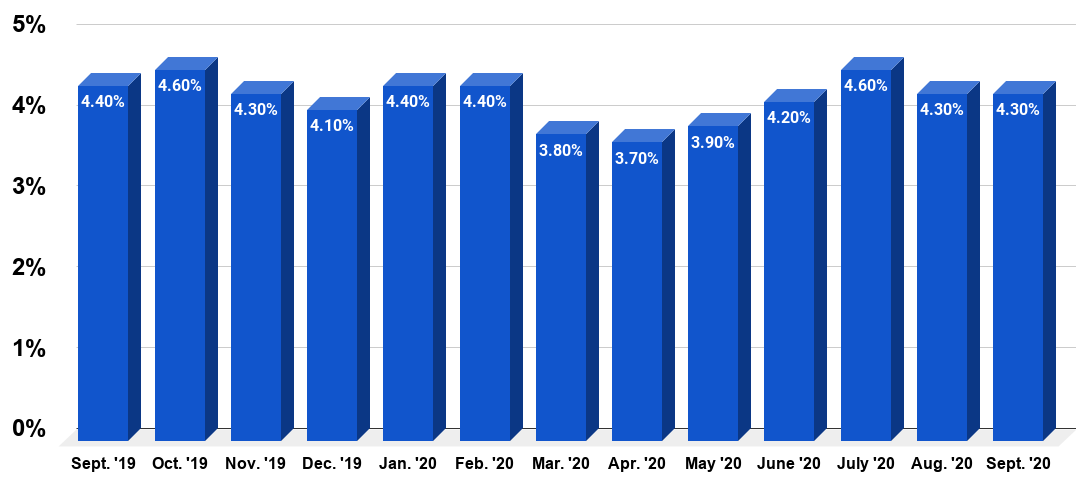
If the above stats on the rate of job openings and job separations are anything to go by, we can understand the fear of not wanting to quit your job immediately even if you feel you probably need to do so. The job market isn’t exactly very rosy if we are, to be honest, and realistic. The unemployment rate and rate of job losses at present are still not encouraging, as can be seen from the two charts below.
Monthly number of job losers in the U.S. from October 2019 to October 2020 (in millions, adjusted). Source: Statista
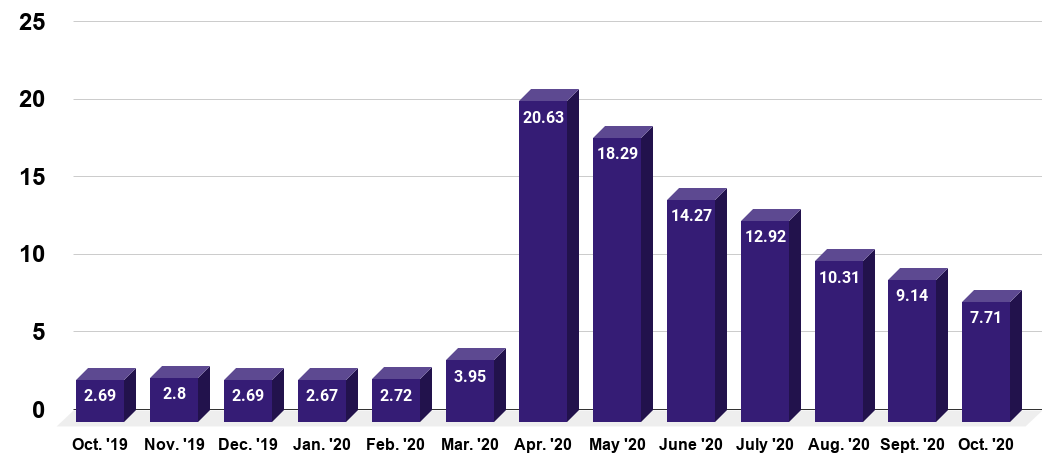
United States: Unemployment rate from 2010 to 2020. Source: Statista

But does this mean you should continue staying at a job that you should in all sincerity not be working at? Should the dread or fear of joining the statistics of unemployed or job hunting individuals be reason enough to stay at a job that is doing you more harm than good instead of caring for yourself enough to leave? Absolutely not.
And if you’re reading this article, you’ve probably been thinking about quitting for some time but each time something seems to hold you back. Maybe it’s fear. Maybe it’s hesitation. Maybe you’re questioning your perception and wondering if it’s all in your head and you’re exaggerating just how bad things are. Let us show you in this article that it may not be in your head after all, and that it may be time to quit your job immediately.
In this article we cover the signs you need to quit your job immediately, and when to leave a job without notice.
You may like our workplace-related articles on Gifts for someone who got a new job and Farewell gifts for female boss.
How to know if you should quit your job – 19 Signs you should quit your job immediately.
Table of Contents
If you’re uncertain whether you should quit your job immediately, the presence of at least half of these 19 signs is all the answer you need.
1. If you’ve reached/hit a plateau at your work and are no longer being challenged at work.
Hitting a plateau means reaching a point where you are no longer making progress. In short, you have hit the peak of your career at work, and there are no other peaks to attain.
University graduates’ satisfaction with first job, by job attribute in the U.S. 2012. Source: Statista
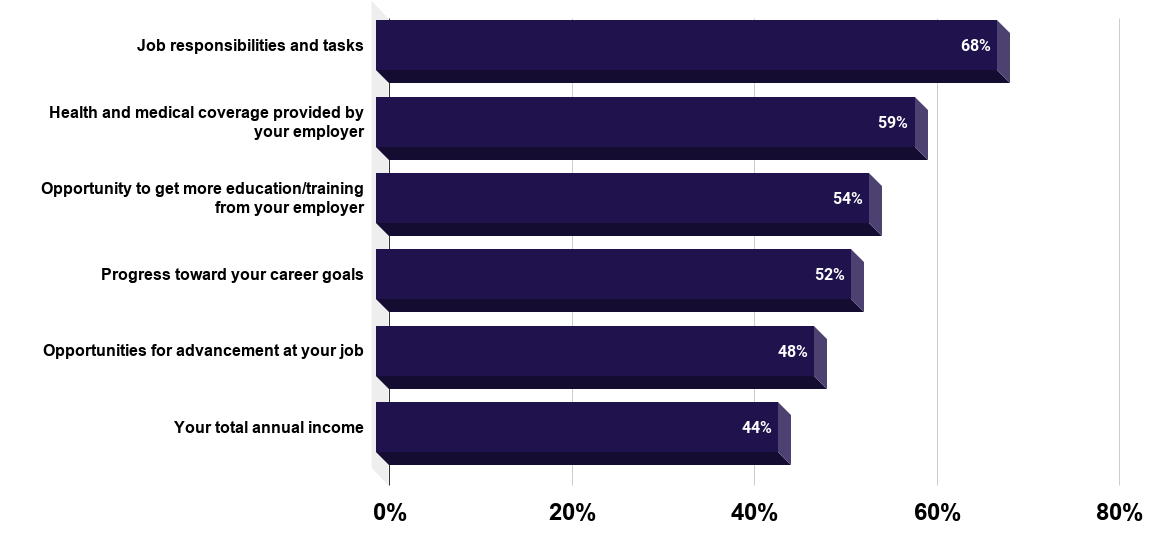
Making incremental and steady growth in one’s career is one of the important fulfilling aspects of having a career that one would thrive in, and this is also confirmed by the graduates surveyed in the above chart.
When you’ve hit a plateau, your career progress stalls. You have learned all you need to learn. You have achieved all there is to achieve at your workplace and tasks and responsibilities no longer have an appeal anymore but have rather become mundane and routine. This is detrimental to your growth and progress because your career is not tied to a workplace but is independent of your workplace.
If you notice or realize that you are no longer being challenged at work and that you have reached the peak of achievement in your workplace, or have hit a plateau, it is time to quit your job. It is time to quit and find other challenging peaks and mountains to pursue, because the longer you stay, this becomes detrimental to your career growth.
What happens when you hit a peak is a slow regression without your realizing it. You start becoming stale and stagnant in your profession and before long, you start losing relevance. And the worst thing that can happen to any professional is to start losing relevance. Get out before your career growth dies by being in a stagnant place.
2. You don’t feel fulfilled or satisfied anymore.
According to a very encouraging 2018 survey seen on Statista (and depicted in the chart below), as much as 45% of Americans said they were somewhat satisfied.
Satisfaction of U.S. employees with their current job in 2018. Source: Statista
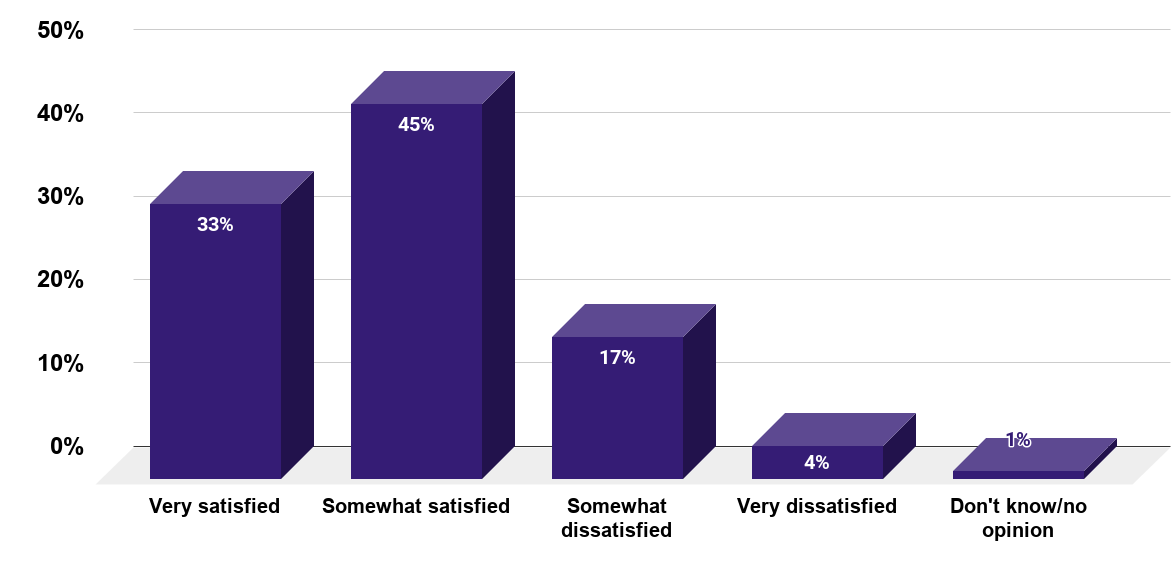
This is great and very important for any enjoyable work life. But if you find that you are not part of that 45% and instead fall within the 4% that are very dissatisfied or the 17% that are somewhat dissatisfied, then it is time to quit your job.
Not feeling satisfied or fulfilled is not exactly the same as hitting a plateau. It is very possible to feel very unfulfilled and unsatisfied at work even when you haven’t hit the plateau at your workplace. Dissatisfaction or unfulfillment could be for a myriad of other reasons like the work not being a perfect fit with your career ambitions or just a work environment that isn’t conducive anymore.
Whatever the reason, you know deep down when you no longer feel fulfilled. And once you are at that point, there is no need to keep making excuses because the longer you stay at an unfulfilling job the more miserable you are. And when you’re miserable, it affects your productivity and ability to deliver at work.
3. Work is taking a toll on your health and/or you have a pressing family emergency to take care of.
This should be a no-brainer. No work is worth sacrificing your health and wellbeing for. Once you realize that the volume and demands of work are not getting any better, and is instead negatively impacting your health, it is time to pull the plug and call it quits. It is better to live to fight (or work) another day.
On the other hand, you may have a pressing family emergency that needs your full undivided attention. This is also another no-brainer that doesn’t need too much explanation. Simply let your employer know that there is a pressing family emergency that requires you to quit and devote all your time to it. Most employers will always understand family emergencies.
Read this important related article on Influences that can affect a person’s life to gain more insight into things that can affect your health and wellbeing.
4. It is starting to negatively affect the important relationships in your life.
This also tends to happen when your work takes up too much of your time that there is almost always none left for the important relationships in your life. Love and family relationships will always take precedence over work no matter how much that work pays because when work fails, family and friends will always be there for you.
Any work that is negatively affecting the important relationships in your life is the type of (professional) relationship you should give up and quit.
5. Where it is no longer a good fit with where you see yourself going.
This is also another pretty self-explanatory sign. There is no point in being aboard a ship that is headed in a different direction from where you are going. Looking at your career ambitions, dreams, and plans, how aligned is your work with that plan. Perhaps initially, it served your career ambitions but things have changed.
If your goals have changed and your workplace is not helping further that goal, consider looking at other places that would align with those goals. This is because if you decide to stay at it, it won’t be long before you start feeling unfulfilled, frustrated, and resentful of your work.
6. Your job description has dramatically changed and not for the good.
In some bad cases, this may have happened the minute you walked into that job. Maybe you were a victim of what has now come to be known as a “bait and switch” where you were interviewed and told you would be doing a certain type of work, only to get in and discover the exact opposite was the case. And you didn’t sign up for this opposite work and hate it.
First of all, it is important to point out that a “bait and switch” is unlawful and unethical. Where you are a victim of this unethical practice, raise the issue with your manager as tactfully as possible. If he/she decides to stigmatize you for this, keep records and evidence of this in case you decide later to pursue a claim for constructive dismissal. Do not hesitate, follow the steps that will be discussed in other sections of this article and quit, after you’ve collected your evidence of course.
On the other hand, if you were doing meaningful work before, and suddenly your job description is changed dramatically to more mundane and routine work that does not advance your career, it could be a ploy by your employer to try to get you to quit. We discuss all the other signs of an employer who wants to get you to quit in our helpful related article on 37 Telling signs your boss wants you to either leave or stay. It would be a helpful read.
Where this happens to be the case, have an exit strategy in place (discussed in the next sections), and don’t hesitate to leave. The longer you stay at the job the longer you extend your misery.
7. If you dread going to work.
Does your heart sink every Sunday night because of the thought of having to get up on Monday and go through the motions of work again? Then it may be time to call it quits. Of course, we all have those times we dread going to work.
The difference between this once-off dread and the dread that shows you need to quit your job is that in the case of the latter, it has become your new normal. If you find that you dread going to work every day and can’t remember the last time you were excited about going to work, then it is time to quit your job.
8. You find yourself bored with work a good deal of the time.
This will invariably happen if your work is no longer challenging, fulfilling, or satisfying or you dread going to work. Where you have any of these feelings, boredom at work becomes inevitable. You may find that you spend most of your time on social media pages or browsing travel destinations or daydreaming. Honey, once you are at this point, it is time to quit your job.
9. You’re getting more work but your pay isn’t also being increased.
This is another exploitative and unethical workplace practice that some unscrupulous employers engage in. Has the scope of your work suddenly increased and yet there is no attendant increase in your pay? Take this up with your employer and if nothing changes, it is time to leave your job. You deserve to be paid for all the effort and labor you put in at work and should only work for someone willing to pay you just wages for the amount of work you put in.
10. You’re always complaining about work.
Have you noticed how the only thing you ever seem to talk about when you meet up with your friends or family members is how terrible your work is? You have become so notorious for this that everyone has at some point told you to quit if it’s such a nightmare. They’ve probably also grown tired of hearing your same old complaint that never changes. You should pay heed to them. A job that causes you such grief doesn’t sound like something worth it anymore.
11. You daydream about quitting.
When you find yourself at this point, trust your gut and instincts and call it quits. And you know deep down that you should quit. Dragging out the inevitable will only serve to keep you miserable and unhappy. You will also resent and hate yourself in the long run for it.
12. The money is no longer motivation to stay.
Most important attributes when considering a job among millennials in the United States in 2012. Source: Statista

Millennials – appealing aspects of work in the United States, 2012. Source: Statista
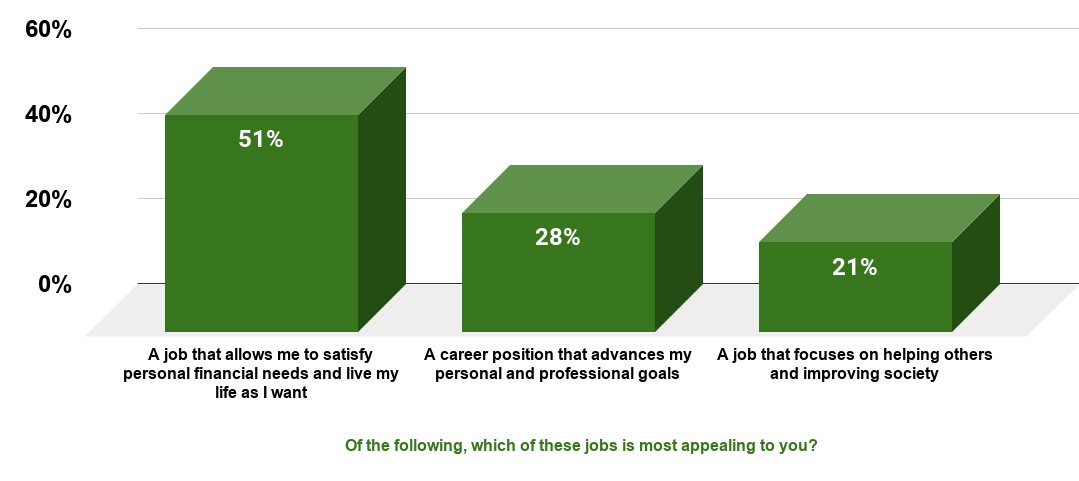
This one is another big sign that it’s time to quit. If you’re like the Millenials shown in the charts above and find that the money/paycheck is your biggest motivator, once this stops being a motivation, it may be time to call it quits.
Getting to the point where money no longer motivates you means there is nothing you enjoy about the work anymore and the money alone is not even a reason to keep flogging the dead horse. Where you reach this point, it is imperative you leave your job and find another one that would give you that motivation that drives you and which you enjoy very much.
13. You have an active side hustle that gives you more joy than your actual job.
Americans with a second job in 2012. Source: Statista
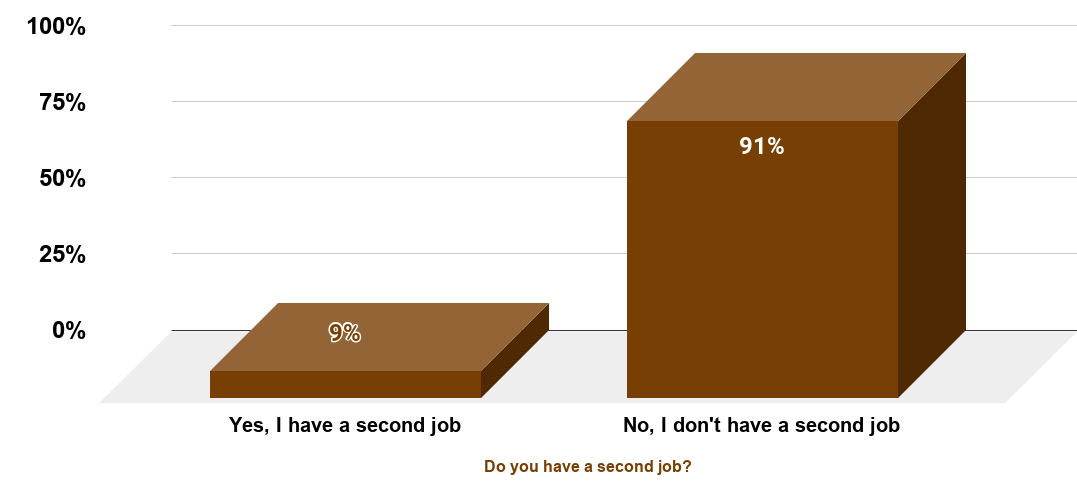
This is another telling sign that you should quit your job. If you’re like the 9% that have a second job and you derive more joy from it and it keeps you more engaged and happy than your main job, it is time to leave your main job.
Trying to keep both would eventually mean your main job suffers and this may affect your productivity and in turn, expose you to disciplinary processes at your place of work. There may also be a conflict of interest and breach of your contract if you are contractually not supposed to have a side hustle.
If this comes out, it exposes you to having a disciplinary record at work and possibly losing some of your employment benefits. To avoid things coming to that point, it is best to quit honorably and focus on your second job/side hustle.
14. If the work environment is toxic or hostile.
A toxic or hostile work environment is bad for your mental and physical health. It will ultimately take its toll on your health and is not worth it. Once you see all the signs of a toxic and hostile work environment, don’t expose yourself to further hurt by staying. Gather up the courage and quit the job.
15. Where your workplace’s practices are unethical.
And there are several such workplaces. Their business practices and culture are very unethical and leave a lot to be desired. Should their unethical practices come to light, it always harms its employees. Salvage your professional integrity and reputation and walk out of any workplace with unethical workplace practices.
16. When the company is laying people off.
Usually, when a company is laying people off, you may find yourself suddenly out in the cold with nothing to fall back on. Once you sense that your company is going through significant structural changes or is in the process of being acquired by another company, it is time to start looking at other places because your job is no longer guaranteed.
17. Where the company has a culture of reprisals against employees who voice legitimate concerns or give notice.
If you notice that your company is one of the vindictive types that does not take too kindly to employers voicing legitimate concerns or give notice when they want to quit, that is another workplace culture you don’t want to be a part of. Employees should be free to voice their legitimate concerns without being stigmatized for it. Before you become a victim of such dictatorial tendencies, it is best to take your leave.
18. If your superior is overbearing and you can’t handle it anymore.
We all wish our supervisors can be our workplace mentors and take us under their wings to teach us the ropes. But alas that isn’t always the case. Some supervisors are from hell for lack of a better description. It’s almost as if they are out to destroy you. Before they do so, leave that job.
An overbearing supervisor that refuses to change despite your repeatedly voicing your concerns will only eventually sabotage and destroy your career and reputation. Don’t give them the chance to do this. It is time to leave the job before this happens.
19. If illegal actions are directed to you such as sexual harassment and bullying.
If you find that you are a victim of such illegal workplace practices, take legal action (especially for sexual harassment). But before you do so, quit the job first, and then pursue your legal claim from outside. And remember to collect as much evidence as you can of all these illegal actions directed to you as they would be very crucial and important should you choose to take legal action.
And if you are worried about being able to find another job, let this chart below of the 50% of Americans who were extremely confident they could find another job give you hope that you can also find something else that would be more fulfilling and beneficial to you both career-wise and healthwise.
Confidence in finding another job in the U.S. in 2011, by education and age. Source: Statista and here

And if you have a coworker who has put in their resignation and is leaving, let our articles on What to do for a coworker leaving and Going away gift for female coworker help you with ideas on how you can send them off with love to wish them well.
Can I quit my job immediately without giving and serving notice? When to leave a job without notice.
Under normal circumstances, you should give notice before quitting your job. This is to enable your employer to make adequate arrangements for your replacement given the tons of work that would be left behind as a result of your absence. The last thing you want is for your coworkers to not like you or resent you because you left abruptly and left them to have to work extra time. There’s also the fact that your employer may refuse to write you the needed reference for your next employment because you left abruptly with no notice.
Unless your contract of employment stipulates otherwise, the industry practice of the notice period is two weeks notice. And even if you don’t have a contract and are free to go abruptly, as we said earlier, it is tidier to give notice. In giving your notice, you don’t need to go into the specifics of exactly why you are leaving. You can keep it as vague as saying that you believe it’s the best decision you can make for yourself at this point in your life.
There will however be exceptional instances where the circumstances are such that you are unable to give notice. And where you find yourself faced with such an exceptional circumstance/instance, you don’t need to give notice. You can leave immediately without giving notice.
Of the 19 signs given in the earlier section, 7 of these qualify as exceptional instances that allow you to leave immediately without giving notice:
- Where you have a family emergency or a pressing health issue to deal with.
- Where the work environment is hostile and toxic.
- Where your supervisor is overbearing and difficult.
- Where your workplace is engaging in unethical workplace practices.
- Where you are a victim of illegal workplace practices like sexual harassment and bullying.
- Where the company is laying off people.
- Where there is a culture of reprisals and stigmatization of employees who give notice.
Except in the case of a family emergency and laying off, giving notice would only further endanger you at the workplace, and is, therefore, best to leave immediately. With family emergencies, employers usually understand. And with laying off, especially where it is inevitable that you will be laid off, you would be doing the employer a favor.
Once you’ve given notice and/or leaving abruptly, have fun on your last days with your coworkers. They have after all been your second family during your stay at work.
You will love this related article – Fun things to do with coworkers outside of work.
How to go about quitting your job (immediately).
Ideally, quitting your job should not be immediate but well thought out and planned out. But if you are in any of the situations listed in the earlier section and have no choice but to quit immediately, here is how you go about it.
- Apply for other jobs before leaving.
- Hand in your letter of resignation. Don’t leave without doing so in writing. It can be an email or a letter, but there should be something in writing. And don’t forget to have a copy for yourself. This is also to cover your bases in case your employer turns around tomorrow to claim that you absconded.
- If the work environment is not conducive at this point and talking to your supervisor will not be ideal, you don’t need to do anything beyond handing in your letter of resignation.
However, if you are not in the position where you immediately have to quit, then have a strategic exit plan that involves the following:
1. Decide what the reason is for having to quit.
It is important to pinpoint the reason specifically so that you don’t end up in another workplace with the same problems you are running away from. Being specific about the reason helps you determine what the deal-breakers in your new place of work will be and what your goals in finding a new workplace is.
2. Give yourself a timeline of at most 6 months, and at least 3 months.
The reason why it needs to be a short period, but not too short, is because the longer you drag it out the more you eat away at your resolve to leave. And also not to mention the toll it takes on you staying long at a horrible job that you need to quit.
3. Start job hunting immediately or at least putting together a survival fund.
The minute you conclude that you are at a point where you need to quit your job, and you have given yourself the 3 – 6 months exit window period, use those 3 – 6 months to aggressively save up a contingency/survival fund. Also, use that time to actively job hunt.
It would be best to have an interview and a possible second job on hand before stepping out the door. If however, you find that no jobs are forthcoming while your 3 – 6 months seem to be coming to an end, work on increasing your contingency funds for the months when you will be unemployed while waiting.
4. Consider entrepreneurship and alternative sources of income like freelancing.
As the job market increasingly gets saturated, one needs to be creative about alternative sources of income. The online job market appears to be the next workplace for people to fall back on. Find a skill or skills you have acquired from work and research how you can tap into it in the world of freelancing. The beauty and advantage of freelancing is being able to work at your own pace and convenience. With your drive and zeal, it won’t be long before you start killing it in that field and realizing you’ve found your new dream and passion.
5. Do a proper hand over and tie up any loose ends during your notice period.
Once you’ve notified your employer that you will be resigning, use your notice period to help as much as you can with making a smooth transition. Help with detailed and helpful notes to assist them in knowing what needs to be done. If you have any company properties in your possession, also ensure to return them. You may be leaving but it shouldn’t feel like you left a lot of mess to be cleaned up.
Frequently Asked Questions.
Is it okay to resign immediately?
It is ideal to resign only after giving a 2-week notice. There are good reasons for giving the notice which we explain earlier. If however, you find that you are faced with any of the 7 exceptional circumstances we listed in the same section, it is perfectly okay for you to resign immediately.
How do you know when it’s time to quit your job?
You would feel it in your gut that it is time to quit. Don’t ignore that gut feeling. But if you’re still not sure, then look out for some or all of the 19 signs listed in this article. Once you see some or all of them, then know that it is time to quit your job.
How long should I wait before quitting my job?
If you are not faced with any of the 7 exceptional circumstances listed in this article, give yourself a window period of 3 – 6 months before pulling the plug. And don’t forget to follow the 5 steps listed in this article.
How do you politely quit a job immediately?
Write a polite note of resignation and leave immediately once you are sure that leaving immediately is the best option to settle for.
Never Forget!
Staying at a job you should quit is not worth it. It is better to have peace of mind and health than be at a workplace that drains and sucks the life out of you. The longer you stay at it, the more harm you inflict on your mental and physical health.
The fear of being unemployed should not be a reason to stay. You can thrive from the outside. If the charts on job losses and the rate of hiring and separation are anything to go by, there is something out there for you. The only way you will find it is when you quit an unfulfilling job. And don’t forget to follow the 5 steps outlined in this article once you decide to take the bold step to quit your job.
01 HOUR 10 MINUTES
ESTIMATED TIME DESIGNING AND UPLOADING THIS ARTICLE
09 HOURS 35 MINUTES
ESTIMATED TIME RESEARCHING AND WRITING THIS ARTICLE
You Might Also Like

Farewell Gifts For Female Boss
So, your boss is leaving and you don’t know what to get her as a gift. We get it, it’s sometimes hard to pick appropriate gift ideas for a female boss. We don’t know them personally, so we have to opt for universal things. Yet,

24 Good Mentor Appreciation Gifts For Mentor At Work
Mentors provide an invaluable contribution in a mentee’s life and good mentor gifts to show appreciation is always welcome. There are 4 considerations to bear in mind when buying mentor appreciation gifts. Read on to find out what they are. This list of 24 Good

How to Get a Coworker Fired: 5 Ways to Get Rid of a Bad Coworker
HOW TO GET A COWORKER FIRED: 5 WAYS TO GET RID OF A BAD COWORKER WhatToGetMy Instructional Article There are many ways in which to get a bad coworker fired, some of them legal, ethical, and moral, and others illegal, unethical, and immoral. This article

12 Signs Your Boss Wants to Promote You
12 Signs Your Boss Wants to Promote You WhatToGetMy Instructional Article There are quite a number of reasons why people want to be promoted at work as shown by research from Payscale. Promotions come with higher pay, more influence and are a symbol of appreciation

What to Do When People Don’t Respect You
What to Do When People Don’t Respect You WhatToGetMy Instructional Article Wanting to be respected is a normal and natural human feeling and there is nothing wrong with you wanting to be respected. When people disrespect you, it is either because they are the problem

7 Crucial Signs Your Boss Trusts You
7 Crucial Signs Your Boss Trusts You WhatToGetMy Instructional Article The foundation of every effective work relationship is built on trust. At the root of trust is the question “how dependable is this person?”. For many bosses, the questions they ask often are; 1) Will

13 Gifts for Someone Who Works All the Time
You probably know a friend, relative, colleague, or neighbor who works all the time. They always have a meeting, an errand, or a deadline that keeps them preoccupied. Whether these people are workaholics or temporarily preoccupied for a period of time, we understand that you

33 Signs You Either Didn’t Get the Job or Will Get the Job After Interview
Signs You Either Didn’t Get the Job or Will Get the Job After Interview WhatToGetMy Instructional Article This article will tell you how to know if you didn’t get the job after an interview and how to know if you got the job after the

37 Telling Signs Your Boss Wants You to Either Leave or Stay
37 Telling Signs Your Boss Wants You to Either Leave or Stay WhatToGetMy Instructional Article When your boss likes you and doesn’t want you to leave, they create a positive and enabling environment that encourages you to stay on. In creating that enabling environment, they

Unique Office Desk Gifts For Her
She spends so much time at her office desk, so you are thinking why not get great office desk gifts for her, the type of gifts that will make the time that she spends at her desk more comfortable, interesting, and much easier. Many people


